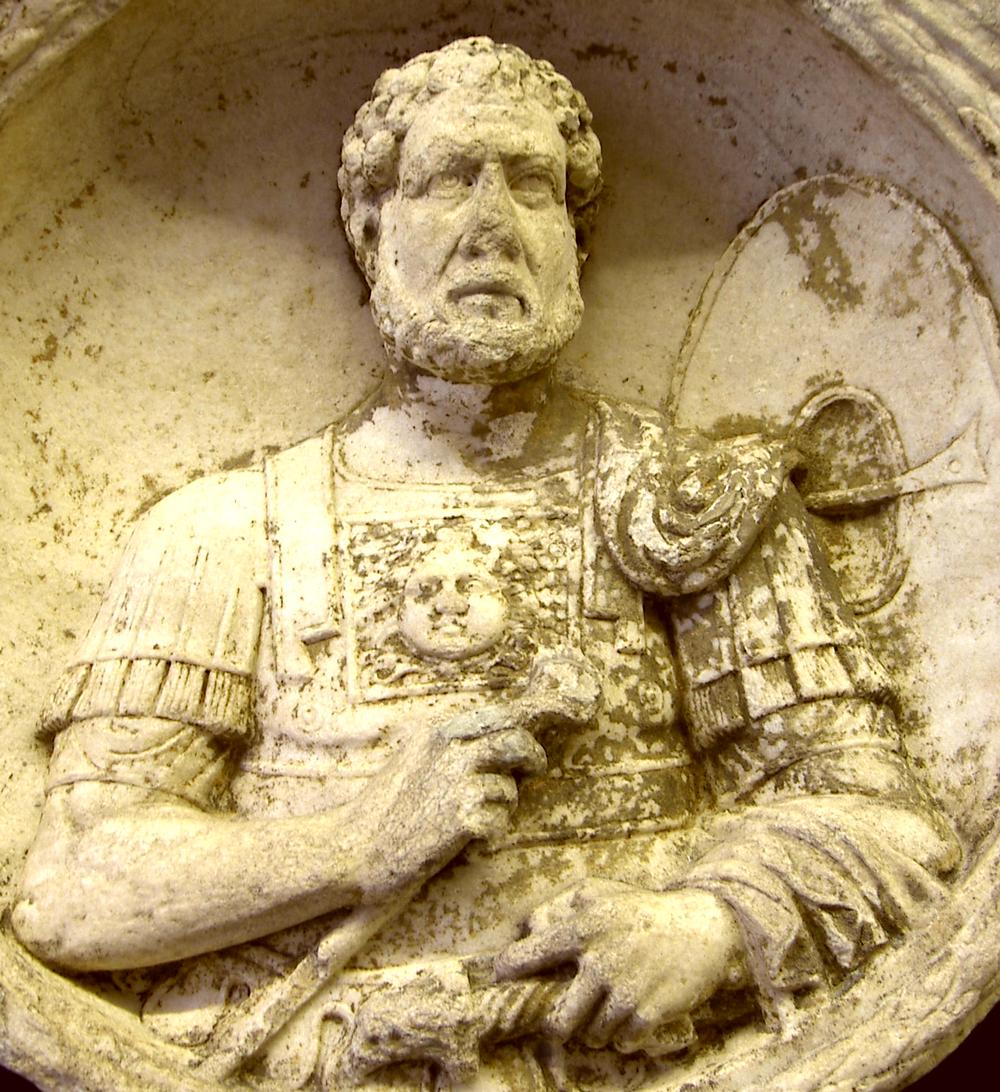What is a…
centurion

Greek: κεντυρίων —transliteration: kenturión —meaning: a commander of 100
Latin: centurio
This is the title a Roman army officer or navy officer who was usually in command of 100 men (Mark 15:39, 44-45).
This title was used in the Roman military, as well as in the Herodian army in Judea.
Centurions were exemplary Legionaries—soldiers and officers consisting of Roman citizens—however they were not necessarily of Roman lineage. These experienced veterans were the backbone of the Roman military. Their special helmet, ornate harness and vine staff (aka centurion’s staff, Latin: vitis) were all indicators of their rank. Their pay was 20 times more than that of an ordinary solider. Senior centurions (5 per legion) received twice as much.
The vine staffs of centurious are often featured on Roman tombs of the 1st through 4th century as a symbol of a centurion’s status.
Centurion at the cross
An unnamed centurion watched the crucifixion of our Lord (Matthew 27:54; Luke 23:47), and when he saw the wonders surrounding it, exclaimed, “Truly this man was the Son of God.”
Cornelius, the centurion
Cornelius, the first Gentile convert, was a centurion (Acts 10:1, 22).
Julius, the centurion
He was with Paul. See: Julius
Other centurions
“The centurions mentioned in the New Testament are uniformly spoken of in terms of praise, whether in the Gospels or in the Acts. It is interesting to compare this with the statement of Polybius (vi. 24), that the centurions were chosen by merit, and so were men remarkable not so much for their daring courage as for their deliberation, constancy, and strength of mind.” —Dr. George Frederick Maclear, New Testament History (late 1800s)
More information